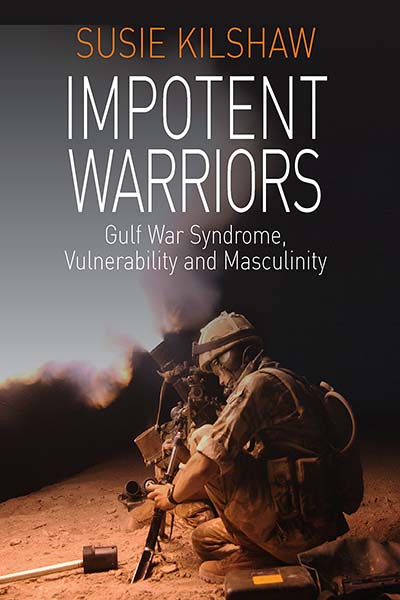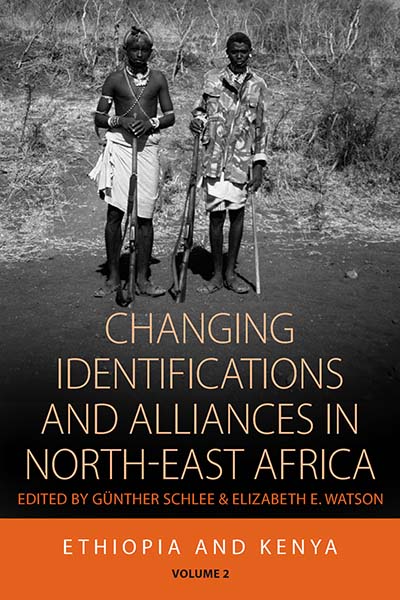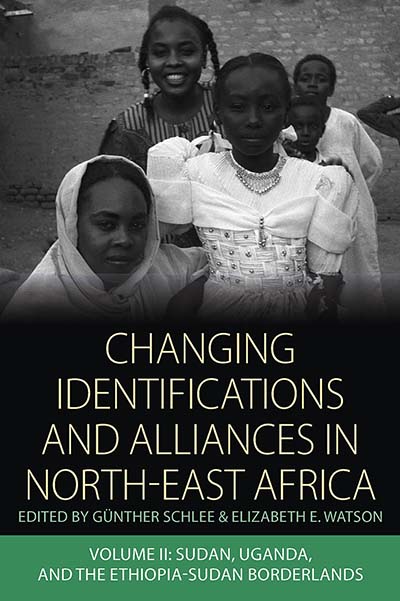
See Related
Anthropology JournalsEmail Newsletters
Sign up for our email newsletters to get customized updates on new Berghahn publications.
Impotent Warriors
Perspectives on Gulf War Syndrome, Vulnerability and Masculinity
Susie Kilshaw
Full Text PDF | Full Text ePUB Made available under a CC BY-NC-ND 4. license with support from Knowledge Unlatched.
282 pages, bibliog., index
ISBN 978-1-84545-526-2 $135.00/£104.00 / Hb / Published (December 2008)
ISBN 978-1-84545-527-9 $19.95/£15.95 / Pb / Published (November 2010)
Reviews
“Medical dialogues are rarely solely about medical matters but serve as a proxy for feelings about the self and the way that an individual relates to others. Indeed, the inclusion of transcripts of interviews and discussions is of particular value…a brave book that challenges popular assumptions about Gulf War syndrome; her analysis of the long-term effects of military service will serve as an important record not only for those with an interest in the armed forces, but also for researchers in the field of illness perception.” · The British Journal of Psychiatry
“This is an important anthropological study, which I believe is set to become a classic. The theoretical perspectives are clearly presented and applied to compelling ethnographic material. The publication of this manuscript will make it accessible to both undergraduate and graduate students of anthropology, as well as students of political science, sociology and military studies.” · Vieda Skultans
Description
From September 1990 to June 1991, the UK deployed 53,462 military personnel in the Gulf War. After the end of the conflict anecdotal reports of various disorders affecting troops who fought in the Gulf began to surface. This mysterious illness was given the name “Gulf War Syndrome” (GWS). This book is an investigation into this recently emergent illness, particularly relevant given ongoing UK deployments to Iraq, describing how the illness became a potent symbol for a plethora of issues, anxieties, and concerns. At present, the debate about GWS is polarized along two lines: there are those who think it is a unique, organic condition caused by Gulf War toxins and those who argue that it is probably a psychological condition that can be seen as part of a larger group of illnesses. Using the methods and perspective of anthropology, with its focus on nuances and subtleties, the author provides a new approach to understanding GWS, one that makes sense of the cultural circumstances, specific and general, which gave rise to the illness.
Susie Kilshaw is a social anthropologist at University College London where she pursues her research interests in new illnesses, health scares and anxieties, military health, and trans-cultural psychiatry. She previously worked for the NHS as a clinically applied medical anthropologist on issues surrounding ethnic minorities and mental health. Since 2004 she has been Assistant Editor of Anthropology and Medicine.
Subject: Medical AnthropologyPeace and Conflict StudiesGender Studies and Sexuality
Area: Middle East & Israel
Impotent Warriors by Susie Kilshaw is available open access under a Creative Commons Attribution-NonCommercial-NoDerivatives 4.0 International License (CC BY-NC-ND 4.0) with support from Knowledge Unlatched.
Full Text PDF | Full Text ePUB
OA ISBN: 978-1-78533-659-1




